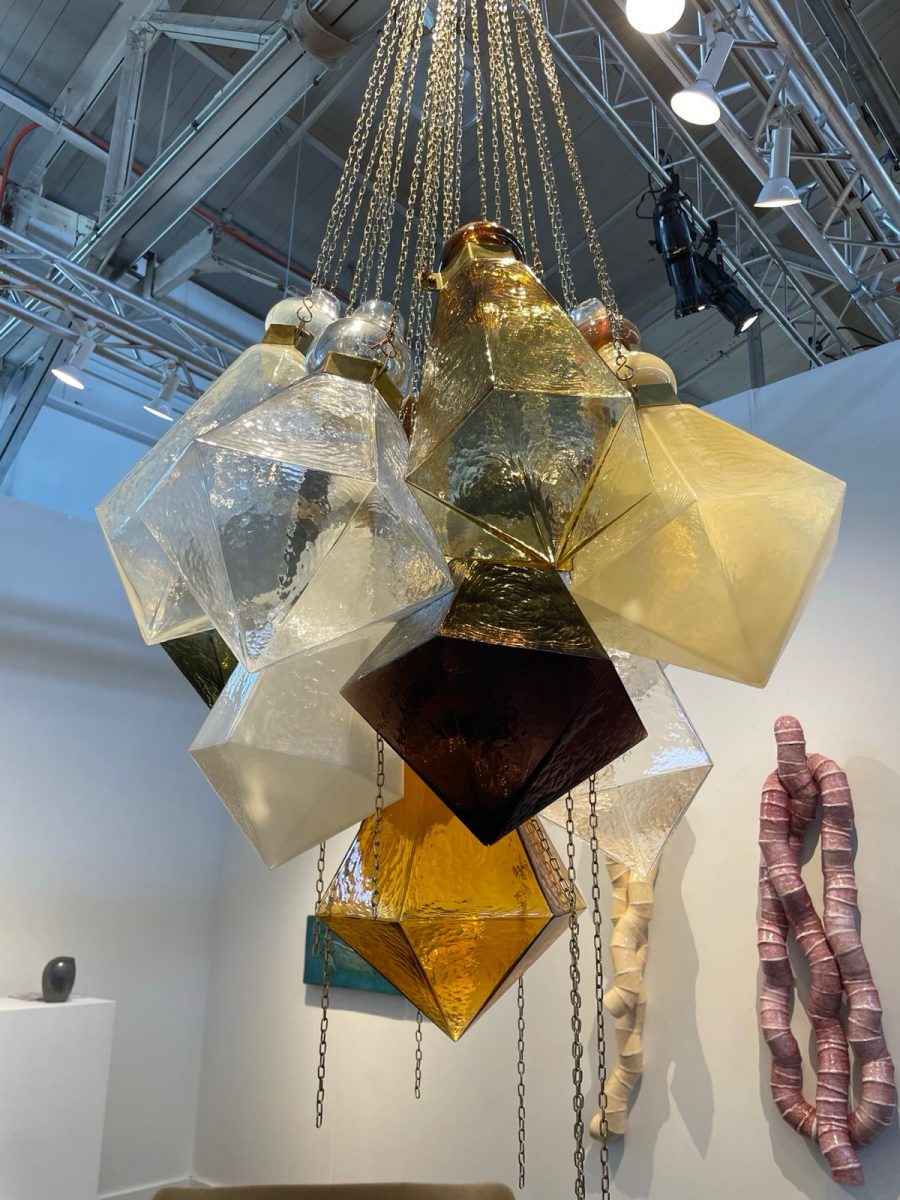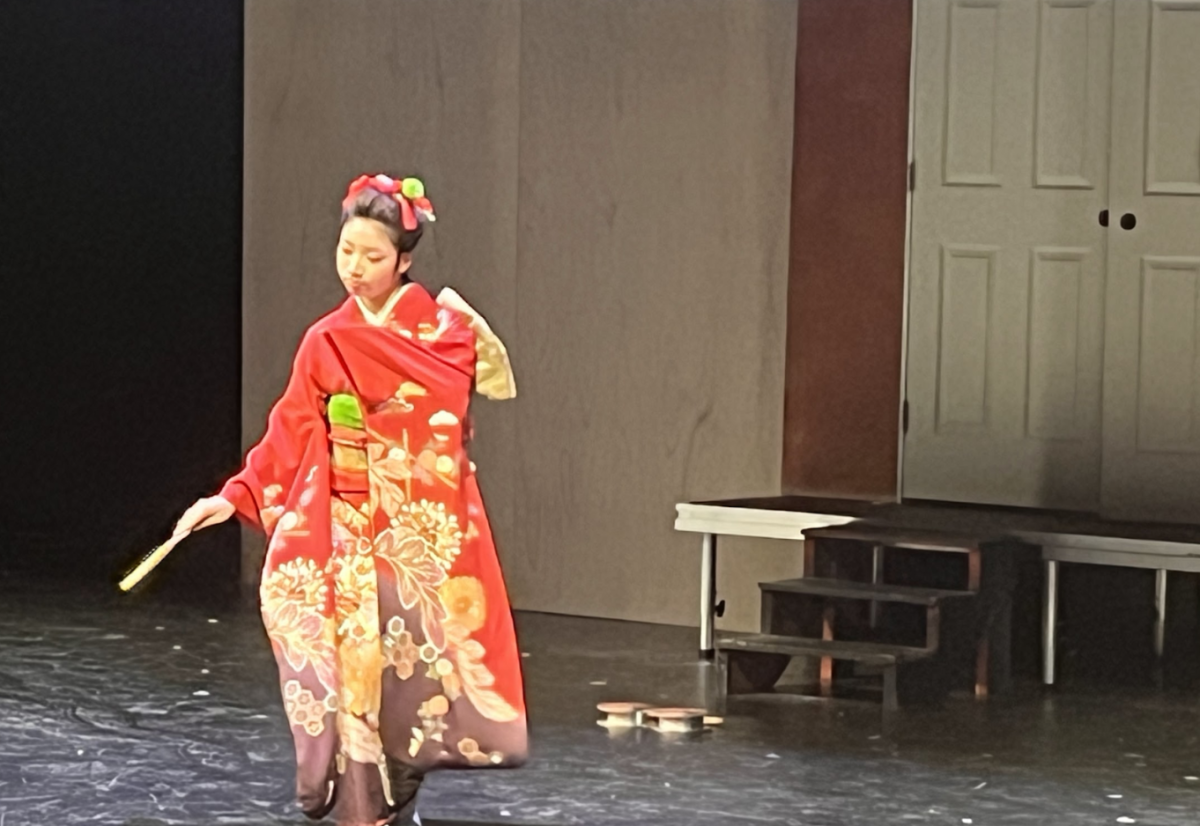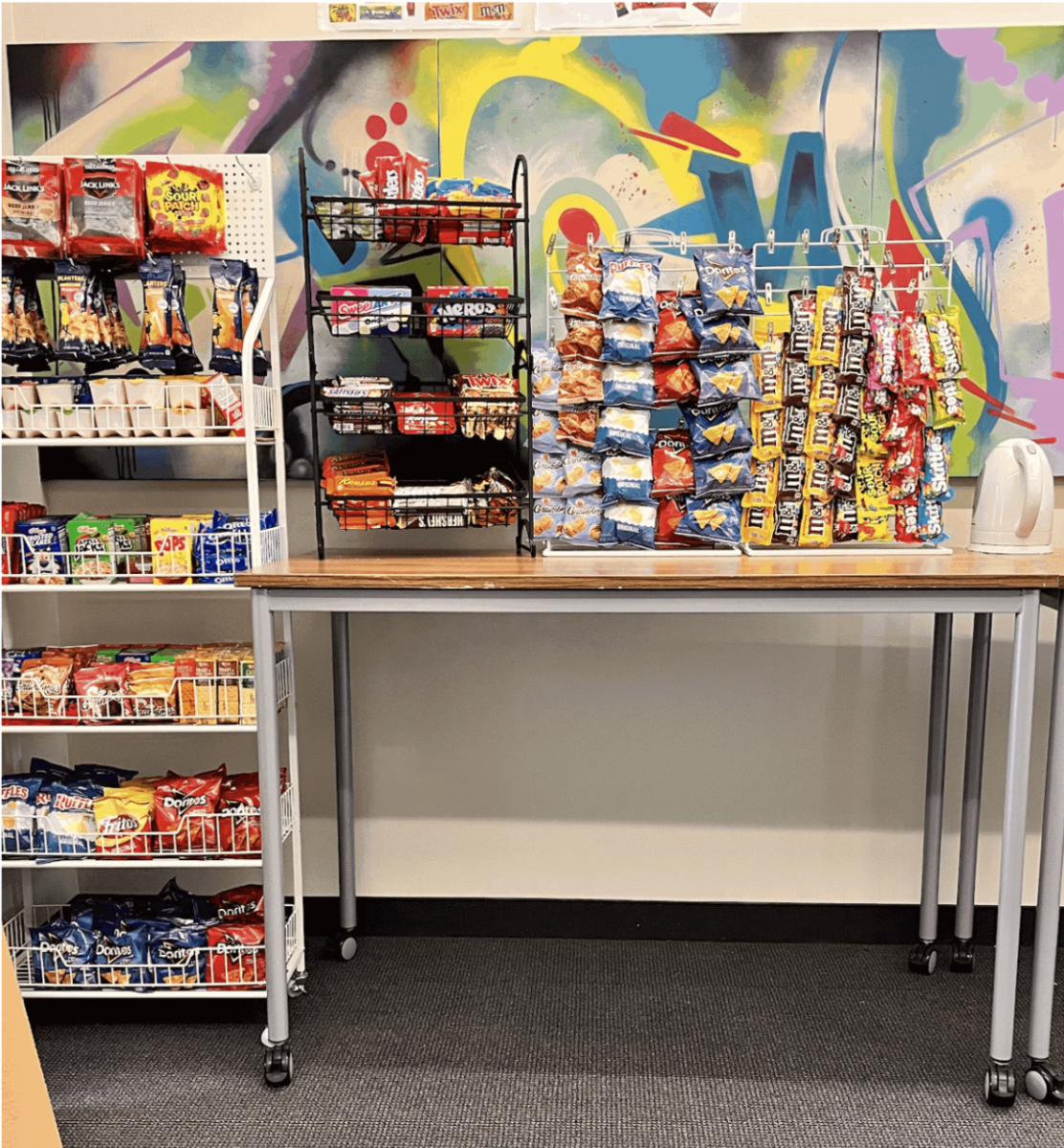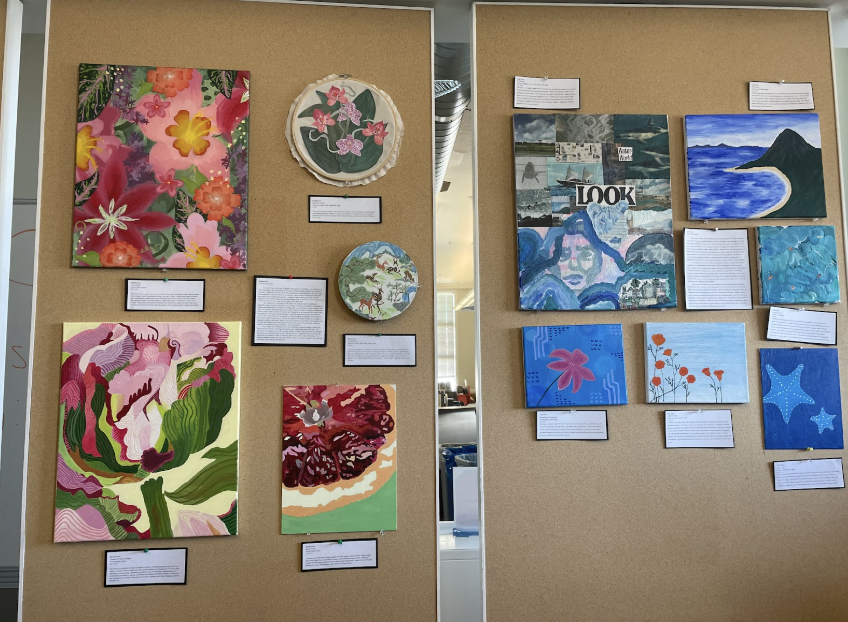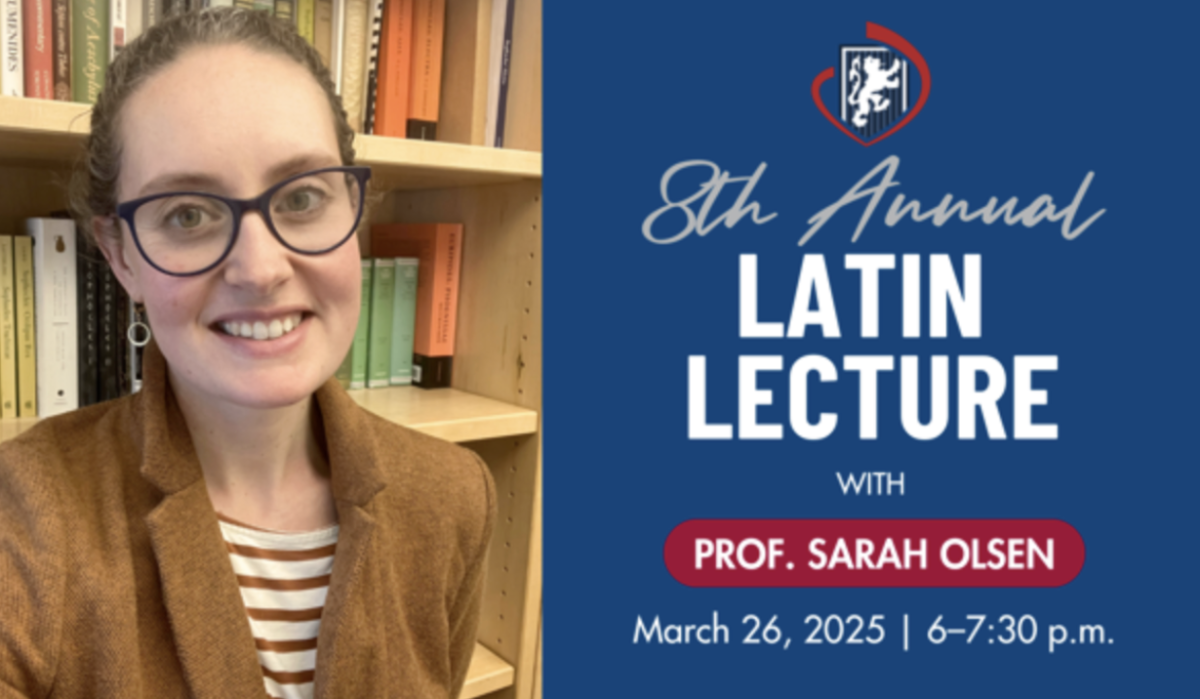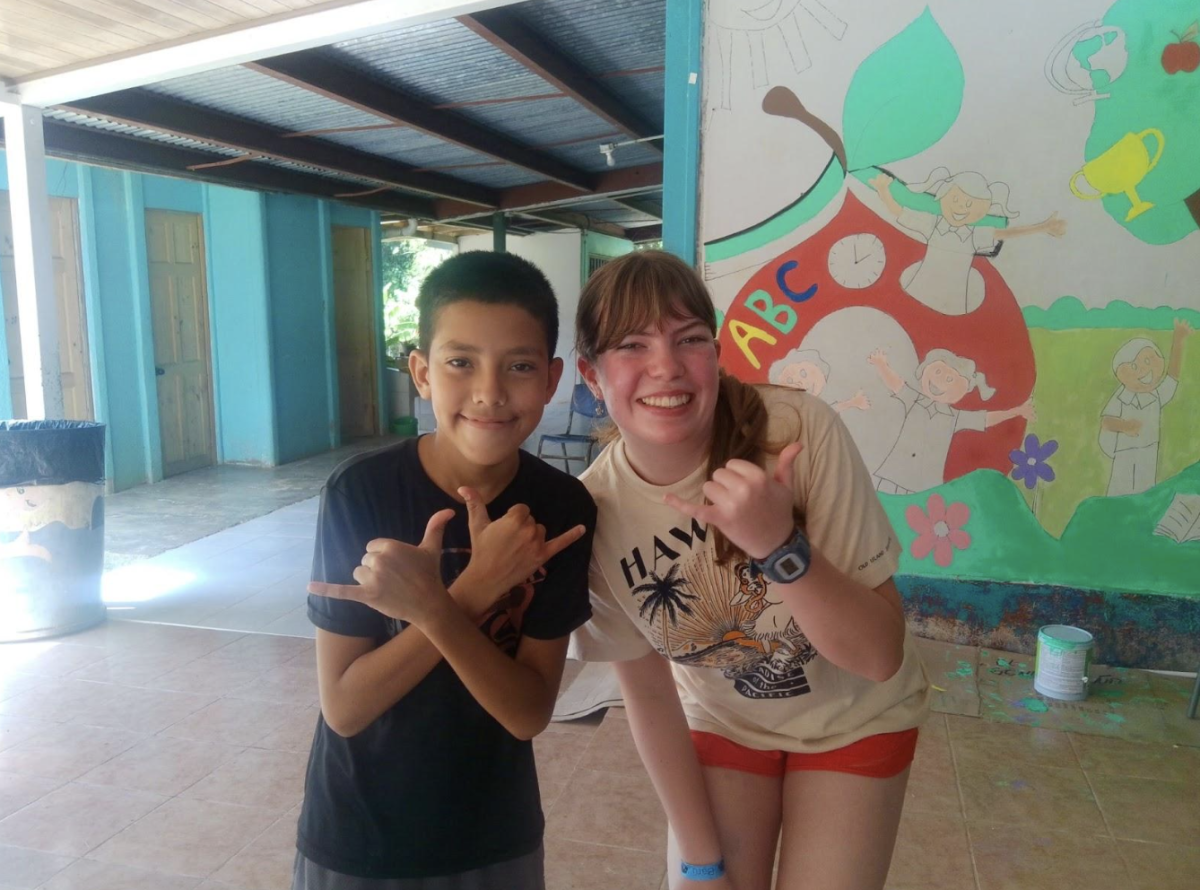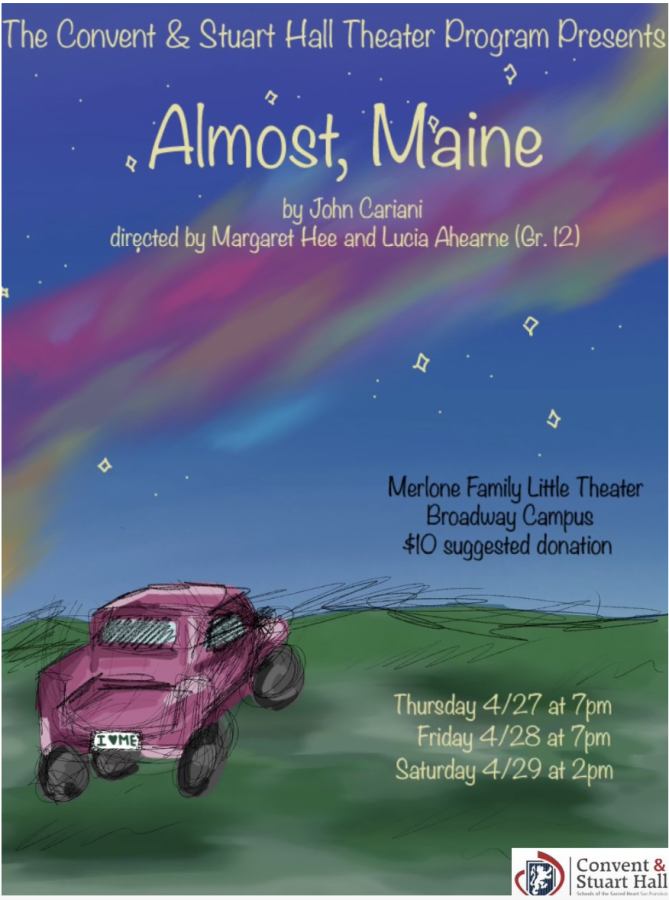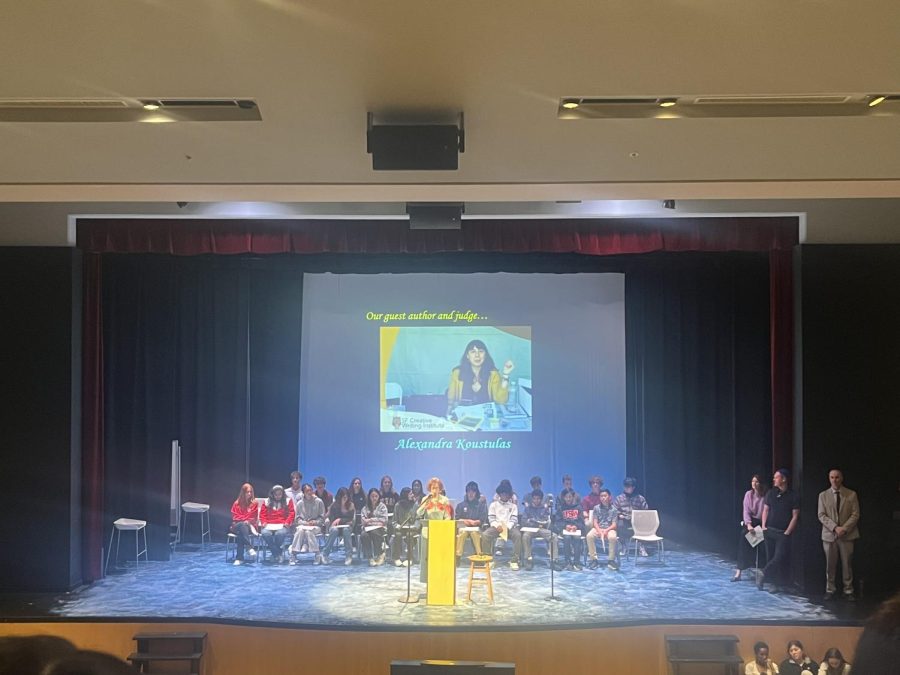The annual Walk for Uganda across the Golden Gate Bridge on Oct. 19 will raise money to provide scholarships, fencing to protect of student and teacher housing, and eco-sanitation at Sacred Heart schools near Masaka, Uganda.
Fundraisers at U.S. Net- work schools, like Walk for Uganda, have provided re- sources such as solar power for water pumps, rainwater cisterns, staff and student housing and tuition assistance. “I attended Walk for Uganda last year and it was such a great event because it made me aware of the situation of our sister school,” junior Sabine Dahi said. “I realized that I can help stop their struggles in ways that I had never envisioned. For example, if I am able to raise $650, It will be enough to send a girl to school for a year.”
Educational innovation co- ordinator Tracy Sena visited three of the four schools in Uganda with other Network teachers in 2012 to work with Ugandan teachers and students, and was struck by “inconveniences” Americans take for granted. “When electricity was off at night, the girls would work in the one building that had a generator or solar panels, and that did not include the computer labs,” Sena said. Four out of 10 children in Uganda drop out of primary school, especially girls who have more drawbacks than boys, accord- ing to UNICEF.
“There is something special about walking across the bridge, and that idea of connecting two spaces in a way that seems impossible.” Kievlan said. “The Walk for Uganda ends up being a metaphor in the way that 75 years ago it would have been impossible to even imagine walking from San Francisco to Marin, and now it is possible to find
a way to bridge our gap be- tween here and East Africa.”
An uneducated girl is more susceptible to poverty, abuse, hunger, violence, exploitation and human trafficking, ac- cording to UNICEF.
“Sacred Heart schools are about empowering young women,” Sena said. “What we do here and what we donate can change the lives of those women, their families and their nation.” Sena said.
The annual Walk for Uganda across the Golden Gate Bridge on Oct. 19 will raise money to provide scholarships, fencing to protect of student and teacher housing, and eco-sanitation at Sacred Heart schools near Masaka, Uganda.
Fundraisers at U.S. Net- work schools, like Walk for Uganda, have provided re- sources such as solar power for water pumps, rainwater cisterns, staff and student housing and tuition assistance. “I attended Walk for Uganda last year and it was such a great event because it made me aware of the situation of our sister school,” junior Sabine Dahi said. “I realized that I can help stop their struggles in ways that I had never envisioned. For example, if I am able to raise $650, It will be enough to send a girl to school for a year.”
Educational innovation co- ordinator Tracy Sena visited three of the four schools in Uganda with other Network teachers in 2012 to work with Ugandan teachers and students, and was struck by “inconveniences” Americans take for granted. “When electricity was off at night, the girls would work in the one building that had a generator or solar panels, and that did not include the computer labs,” Sena said. Four out of 10 children in Uganda drop out of primary school, especially girls who have more drawbacks than boys, accord- ing to UNICEF.
“Walk for Uganda is important because it is an opportunity for us, living in this incredible city, to get to help other people who share our same values and commitments to the Goals and Criteria, but perhaps do not have the same resources as we do” academic support director Patricia Kievlan said. Registration is available on the school website and includes an option to “sleep-in” for the walk or simply make a donation.
“There is something special about walking across the bridge, and that idea of connecting two spaces in a way that seems impossible.” Kievlan said. “The Walk for Uganda ends up being a metaphor in the way that 75 years ago it would have been impossible to even imagine walking from San Francisco to Marin, and now it is possible to find a way to bridge our gap be- tween here and East Africa.”
An uneducated girl is more susceptible to poverty, abuse, hunger, violence, exploitation and human trafficking, ac-cording to UNICEF.
“Sacred Heart schools are about empowering young women,” Sena said. “What we do here and what we donate can change the lives of those women, their families and their nation.” Sena said.
Camilla Bykhovsky
Website Editor
The annual Walk for Uganda across the Golden Gate Bridge on Oct. 19 will raise money to provide scholarships, fencing to protect of student and teacher housing, and eco-sanitation at Sacred Heart schools near Masaka, Uganda.
Fundraisers at U.S. Net- work schools, like Walk for Uganda, have provided re- sources such as solar power for water pumps, rainwater cisterns, staff and student housing and tuition assistance. “I attended Walk for Uganda last year and it was such a great event because it made me aware of the situation of our sister school,” junior Sabine Dahi said. “I realized that I can help stop their struggles in ways that I had never envisioned. For example, if I am able to raise $650, It will be enough to send a girl to school for a year.”
Educational innovation co- ordinator Tracy Sena visited three of the four schools in Uganda with other Network teachers in 2012 to work with Ugandan teachers and students, and was struck by “inconveniences” Americans take for granted. “When electricity was off at night, the girls would work in the one building that had a generator or solar panels, and that did not include the computer labs,” Sena said. Four out of 10 children in Uganda drop out of primary school, especially girls who have more drawbacks than boys, according to UNICEF.
“There is something special about walking across the bridge, and that idea of connecting two spaces in a way that seems impossible.” Kievlan said. “The Walk for Uganda ends up being a metaphor in the way that 75 years ago it would have been impossible to even imagine walking from San Francisco to Marin, and now it is possible to find
a way to bridge our gap be- tween here and East Africa.”
An uneducated girl is more susceptible to poverty, abuse, hunger, violence, exploitation and human trafficking, ac- cording to UNICEF.
“Sacred Heart schools are about empowering young women,” Sena said. “What we do here and what we donate can change the lives of those women, their families and their nation.” Sena said.





